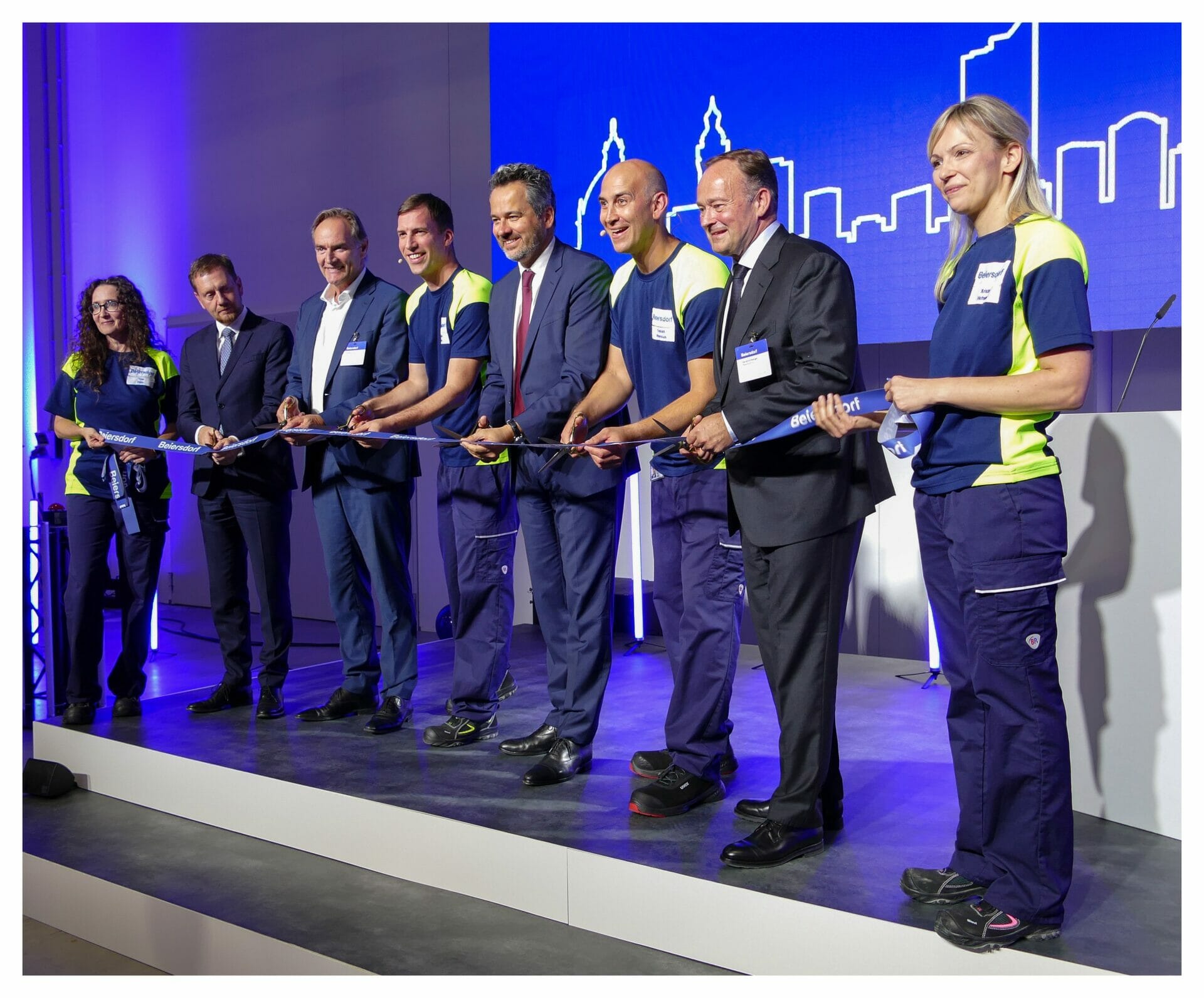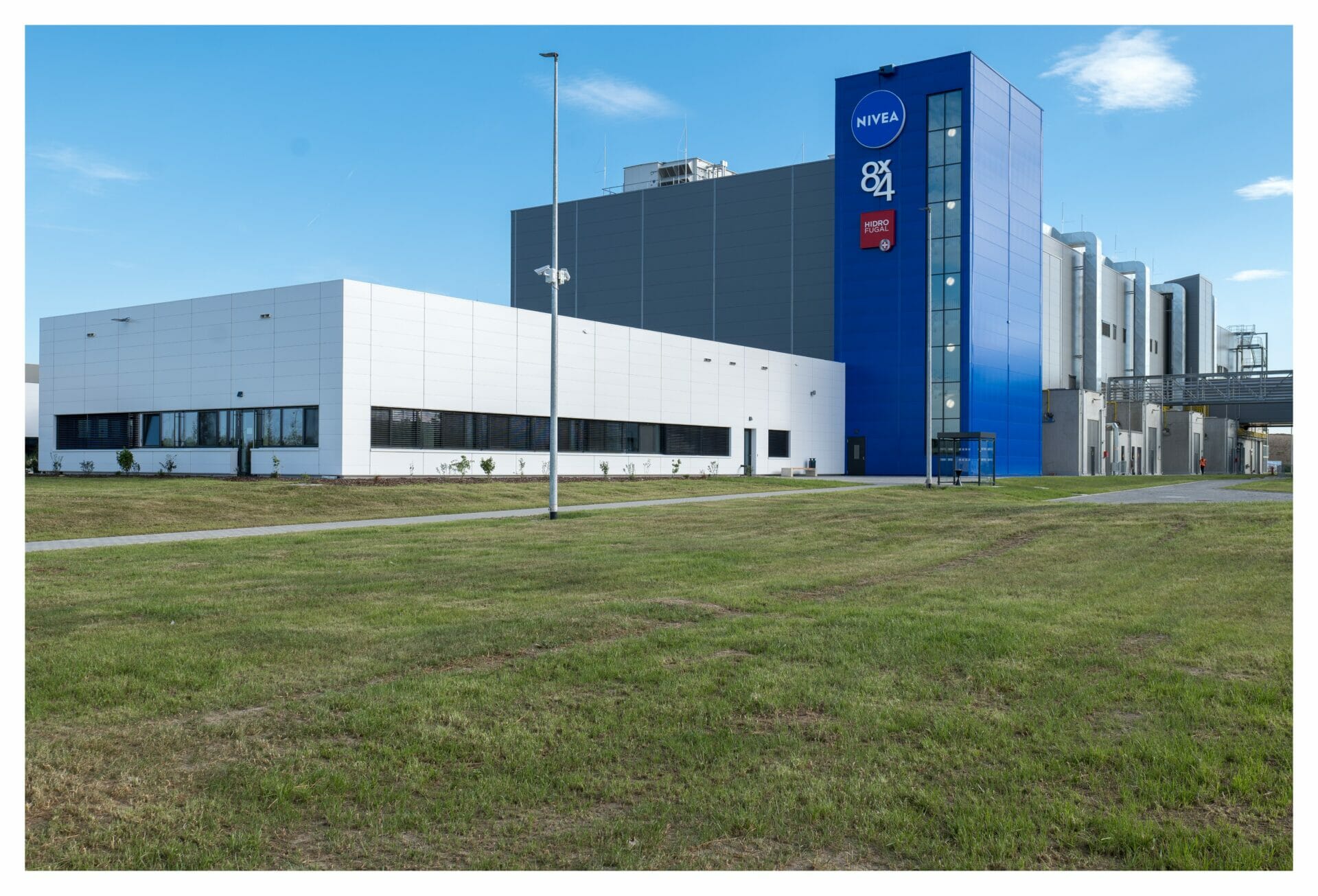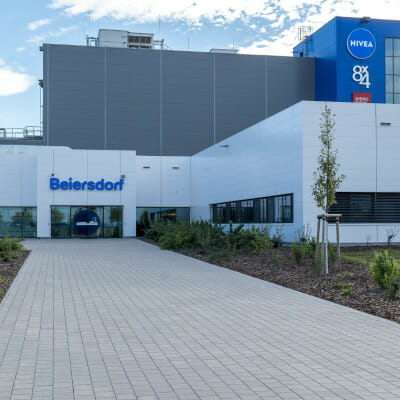- The official opening of the production center took place in the presence of Minister President Michael Kretschmer and the Mayor of Leipzig, Burkhard Jung.
- At almost €300 million, it is the largest investment in a single location in Beiersdorf’s history.
- Beiersdorf Manufacturing Leipzig meets the highest environmental and sustainability standards – it is planned to develop the plant into an “Energy+” site by generating its own sustainable energy.
Beiersdorf officially opened its new production center in Leipzig. In the presence of the Prime Minister of Saxony, Michael Kretschmer, and the Mayor of Leipzig, Burkhard Jung, the successful start of the plant was celebrated with employees, suppliers, trade partners, and many other guests.
After a construction period of about two years, the new, state-of-the-art production center has been successfully ramped up in recent months. The first deodorants “Made in Leipzig” went on the market in the first quarter of this year. As planned, three lines are currently in operation, with two more to follow shortly. Up to 450 million cosmetic products will then roll off the production lines at the new plant each year – in particular deodorants, hair sprays, and shaving foams for the entire European market and for export.
Beiersdorf is making its production facilities and supply chain fit for the future worldwide. With an investment of almost €300 million, the plant in Leipzig-Seehausen is the largest project in this context – and the biggest investment in a single location in Beiersdorf’s history.

Vincent Warnery, Chairman of Beiersdorf’s Executive Board: “We are pleased and proud to officially inaugurate our new, state-of-the-art production center together with you today! Here, in Germany, we are creating the capacity for long-term, sustainable growth of our brands in Europe. The plant features state-of-the-art technology, the highest environmental standards and a unique, strong team. In addition to many employees from our Waldheim site, we were also able to bring many new employees on board. We look forward to writing a success story in Leipzig.”
Michael Kretschmer, Minister President of Saxony: “Saxony is a good place for investment and entrepreneurial commitment. I am delighted that Beiersdorf’s largest single investment to date in a location is being realized here in our Free State. Indeed, the new and state-of-the-art production facility is significant for the entire region and the people living here. The new plant and the many attractive jobs are a clear commitment to Saxony as a business location. It further strengthens Saxony as a technology and industrial location overall.”
Burkhard Jung, Mayor of Leipzig: “Leipzig and the smell – that was a very unpleasant topic 35 years ago. Today, Leipzig smells great. The new Beiersdorf plant is opening up a whole new industry in Leipzig, and arithmetically, every adult inhabitant could get a bottle of deodorant from the plant – per day! Beiersdorf has built an ultra-modern production site in Leipzig, and the city is thus expanding its economic portfolio and becoming more crisis-proof.”
A high degree of automation and extensive digitalization of all production steps ensure efficiency and productivity. At the same time, the plant has a modular and flexible design so that new innovations, trends, consumer wishes or production processes can be implemented quickly.
Beiersdorf Manufacturing Leipzig is making a decisive contribution to the ambitious goals of Beiersdorf’s CARE BEYOND SKIN sustainability agenda. By using renewable energies and biogas for heat generation, the plant runs almost completely CO2e-neutral. Valuable resources such as heat, wastewater, and ethanol are recovered and processed at the new plant. In the future, it is planned to operate the plant as an Energy+ site and – for example through photovoltaics – to generate more electricity than it consumes.

The new plant also contributes to sustainability at product level: With the new technical prerequisites, it is possible to launch innovative, more sustainable packaging solutions on the market – for example, aerosol cans made from recycled aluminum.



